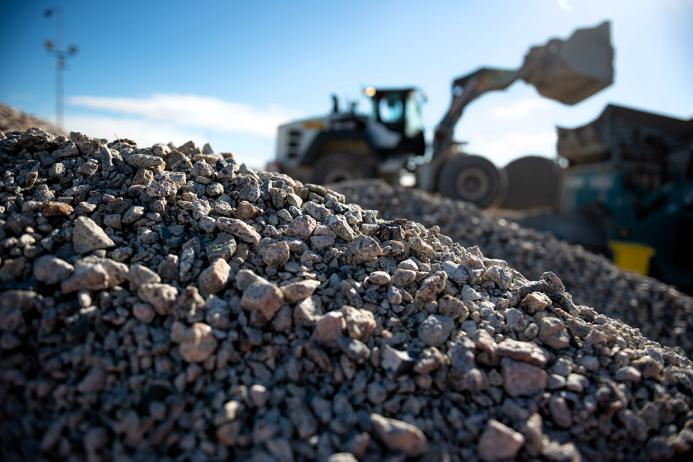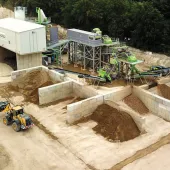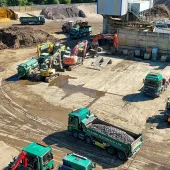Record recycling rates amid call for fresh official data
MPA calls on the Government to commission new survey on materials recovery and reuse
BRITAIN’s leading position in the recycling of waste to produce essential construction aggregates could be extended with more up-to-date government statistics to track progress more effectively.
A new report from the Mineral Products Association (MPA) shows that recycled and secondary materials meet nearly one-third of the country’s 240-million-tonne-a-year demand for aggregate – more than almost any other European nation. But the MPA stresses that two thirds of Britain’s aggregate – essential for housing, infrastructure and growth – must still come from primary sources, either quarries or the seabed.
Given that aggregates represent the largest single flow of materials in the economy, the MPA has called on the Government to commission a new survey on materials recovery and reuse – last conducted two decades ago – to inform key decisions in areas like circular economy strategy, planning policy, and landfill tax reform.
To fill the current data void, in its new report ‘Construction Aggregates Supply in Great Britain: Primary, Recycled and Secondary Aggregates’, the MPA has made its own best estimates, drawing on available information from aggregates producers and third parties, as well as making material-specific assumptions based on availability of different sources.
The new MPA report shows 74.3 million tonnes of recycled and secondary aggregates were used across Great Britain in 2023, accounting for 31% of the market. These materials – mainly derived from inert construction and demolition wastes as well as industrial by-products such as china clay mine waste, incinerator ash, and steel slag – are playing a vital role in resource efficiency and the transition to a circular economy.
Despite the sector’s track record for recovery and reuse, the MPA warns that the absence of robust national statistics hampers the ability to precisely track progress in recycling. Better data would also give MPA members greater confidence to invest in new recycling facilities and technologies.
No consolidated national data has been available since the Waste and Resources Action Programme (WRAP) report in 2008. A comprehensive evidence base, says the MPA, is vital to assessing progress and setting policy on circularity, resource efficiency, and decarbonization.
The new report shows how the share of recycled aggregates has stabilized in recent years, having risen sharply in the 1990s and early 2000s. This aligns with government research in 2005, which found little evidence of hard construction and demolition waste suitable for recycling being sent to landfill.
Two decades on, the MPA says it is increasingly difficult to accurately gauge industry performance and that lack of reliable data risks fuelling counterproductive policy decisions. One example is the Government’s proposed revisions to landfill tax, which include removing the long-standing exemption for quarry sites in 2027. In practice, this could penalize responsible quarry restoration, add costs, and undercut the outcomes for nature policymakers are seeking to encourage.
Luke George, economist at the MPA, said: ‘The UK is widely recognized for its strong track record on recycling aggregates, but without reliable, up-to-date national data, it is difficult for both the Government and industry to make sound decisions and invest in new opportunities.
‘Poorly designed policy that might inadvertently weaken the domestic supply of essential aggregates, whether primary or recycled, would be at odds with the Government’s own priorities to drive growth, accelerate house building, and revitalize infrastructure. And if the Government is serious about sustainability, it needs to plug this significant data gap.’
Mark Russell, MPA executive director for mineral resources, said: ‘Our members are telling us the market is extremely tough at the moment, and the MPA has put forward a series of recommendations to the Government to help address the immediate challenges facing our sector.
‘One area where members remain keen to invest is resource recovery and recycling, but reliable information on the market potential is limited. Our estimates are based on the best-possible modelling of what is available, but to make real progress the Government must support a new national survey. The last one was published in 2008 and since then the Government has been ‘flying blind’.’










